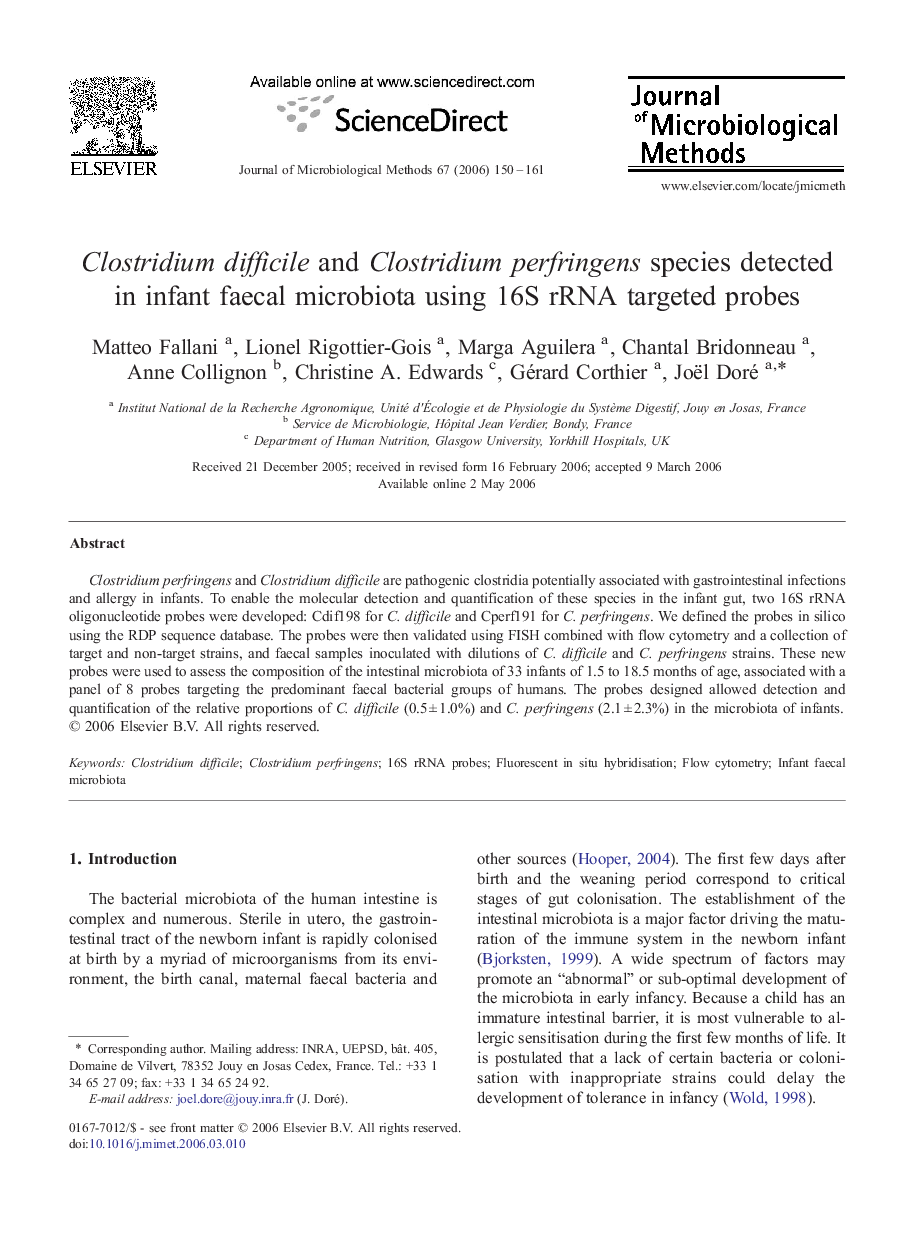| Article ID | Journal | Published Year | Pages | File Type |
|---|---|---|---|---|
| 2091960 | Journal of Microbiological Methods | 2006 | 12 Pages |
Clostridium perfringens and Clostridium difficile are pathogenic clostridia potentially associated with gastrointestinal infections and allergy in infants. To enable the molecular detection and quantification of these species in the infant gut, two 16S rRNA oligonucleotide probes were developed: Cdif198 for C. difficile and Cperf191 for C. perfringens. We defined the probes in silico using the RDP sequence database. The probes were then validated using FISH combined with flow cytometry and a collection of target and non-target strains, and faecal samples inoculated with dilutions of C. difficile and C. perfringens strains. These new probes were used to assess the composition of the intestinal microbiota of 33 infants of 1.5 to 18.5 months of age, associated with a panel of 8 probes targeting the predominant faecal bacterial groups of humans. The probes designed allowed detection and quantification of the relative proportions of C. difficile (0.5 ± 1.0%) and C. perfringens (2.1 ± 2.3%) in the microbiota of infants.
